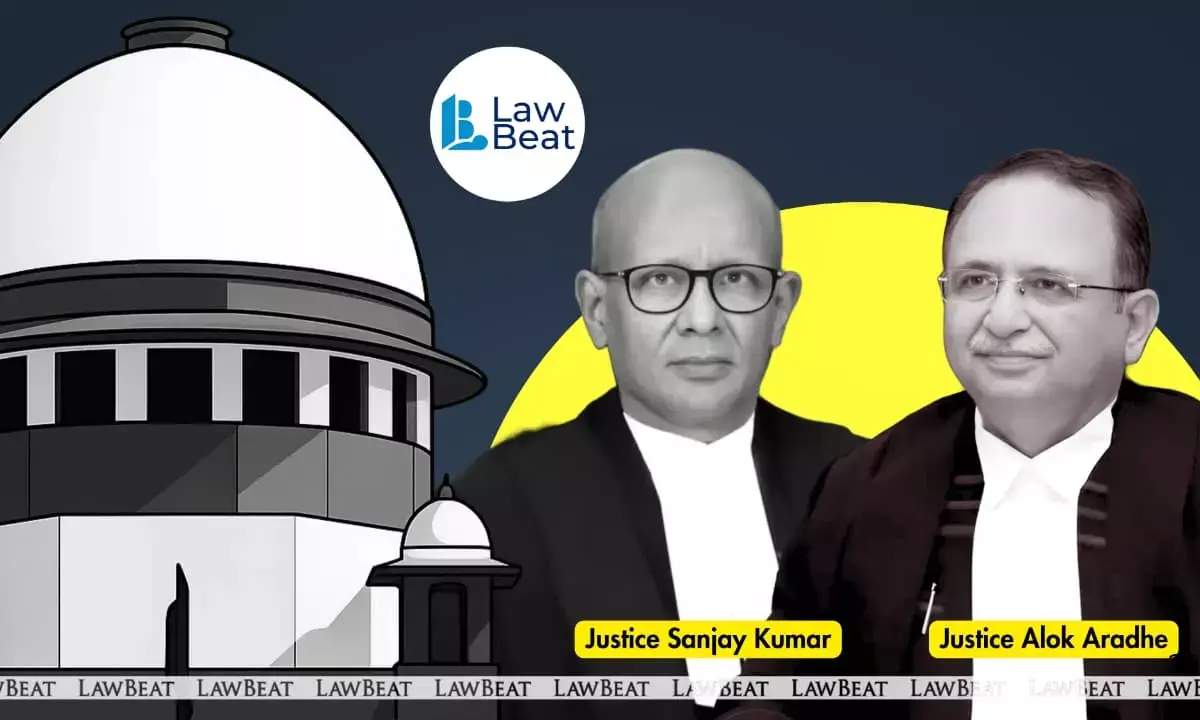Tender Process Gets Vitiated If Condition Limits Competition, Excludes Highest Bidder: Supreme Court

The Supreme Court held tender condition misinterpretation, excluding the highest bidde,r was flawed
The Supreme Court on November 7, 2025, held that when an authority misinterprets a tender condition in a way that restricts competition and excludes the highest bidder on an untenable ground, such a decision-making process stands vitiated.
A bench of Justices Sanjay Kumar and Alok Aradhe observed that tender conditions must be interpreted to serve the object and purpose of the tender which, in the case of natural resources, is to maximise the State’s revenue.
“A public tender is not a private bargain. It is an instrument of governance, a mechanism through which the State discharges its solemn duty of being fair, transparent and competitive,” the bench said.
Court noted that the tendering authority’s obligation is twofold — to interpret its own terms consistently and to ensure that such interpretation furthers the object of the tender rather than defeats it.
The bench was hearing appeals arising from an Orissa High Court judgment dated March 1, 2023, in a writ petition concerning the interpretation of the term “previous Financial Year” under Rule 27(4)(iv) of the Odisha Minor Mineral Concession Rules, 2016.
The case involved a tender notice issued in July 2022 for the extraction of sand from the Mahanadi Sand Quarry for five years. The highest bidder was disqualified on the ground that it had failed to submit the Income Tax Return for the financial year 2021–2022, as required under the rule. The bid was therefore declared non-responsive, and the tender was awarded to the next bidder.
The disqualified bidder approached the high court, which upheld the rejection, holding that non-compliance with Rule 27(4)(iv) justified the exclusion. However, the court also noted that the difference between the rates quoted by the highest and successful bidders would lead to a substantial loss to the public exchequer. It thus directed the tehsildar to ask the successful bidder to match the higher rate in the interest of the State. Both bidders subsequently challenged this decision before the Supreme Court.
While examining the matter, the apex court reiterated that “the heart beat of fair play” in tender processes is fairness and non-arbitrariness in State action. Judicial interference, it said, is warranted only where the decision-making process is arbitrary, irrational, mala fide, or against public interest.
Finding the State’s stance flawed, the bench held that the phrase “previous Financial Year” should be understood as the financial year immediately preceding the one in which the tender was issued, that is, 2020–2021. Since the unsuccessful bidder had filed an Income Tax Return for that year, it had complied with the requirement.
“This interpretation is in consonance with the provisions of the Income Tax Act, 1961,” the court said, criticising the Tender Committee for its “narrow and erroneous” reading of the rule. The committee’s interpretation, it held, wrongly excluded the highest bidder and defeated the very purpose of the tender.
“When an authority acting under a tender misinterprets a condition that diminishes competition and deprives the State of legitimate revenue, the constitutional duty of the court to interfere is beyond question,” the bench remarked.
Court also faulted the high court for failing to consider this crucial aspect and held that its judgment “cannot be sustained".
Emphasising that tenders and public auctions involving natural resources are not mere commercial transactions but exercises in public trust, the bench said the State, as custodian of natural wealth, must secure the best possible value for public resources through a fair and transparent process.
Setting aside the high court’s decision, the Supreme Court directed that a fresh auction notice be issued for the grant of a sand extraction lease for the Mahanadi Sand Quarry under the 2016 Rules, allowing both the earlier bidders and all other interested parties to participate.
Case Title: M/s Shanti Construction Pvt Ltd vs The State of Odisha & Ors
Judgment Date: November 7, 2025
Bench: Justices Sanjay Kumar and Alok Aradhe
